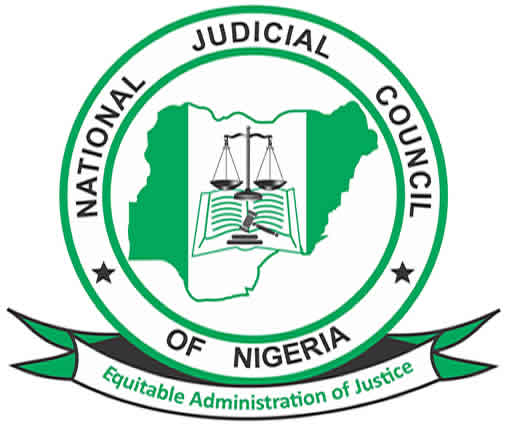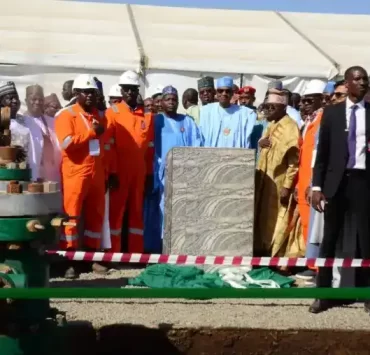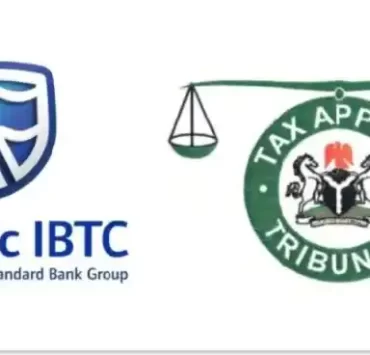How Election Cases Must be Conducted —NJC’s Guidelines

Lawyard is a legal media and services platform that provides…
Amid heightened political activities and disputations, the leadership of the Nigerian Judiciary is reportedly set to measure the performances of judicial officers handling election cases, by the comprehensive guidelines issued to them, on how to conduct the usually-controversial assignment.
94 days to the presidential and congressional election, The Jury learnt that the Policy Directions issued over six months back, has since come into effect, making it difficult for judicial officers on election duty, to offer excuses, if caught in any kind of misconduct.
The Rule Book, The Jury confirmed from the National Judicial Council (NJC) is also in possession of Heads of Courts and all judicial officers in Nigeria, both at federal and state levels.
Following embarrassingly conflicting rulings from courts of coordinate jurisdiction, the Council, at plenary, agreed and issued the Policy Directions on Political and Election Related Cases, at its 98th Meeting of May 10 and 11, 2022, expected to guide proceedings on political cases before and after the forthcoming general election.
In a statement dated May 11,2022, and signed by Mr. Soji Oye, the spokesperson of the Council, it was revealed that the Council unanimously, decided that the Rule Book, should take immediate effect.
According to him, “Concerned by the multiplicity of litigations of political suits at different Courts of coordinate jurisdiction across the nation, resulting in conflicting orders on the same issues and facts, the National Judicial Council at its 98th Meeting of 10 and 11 May, 2022 under the Chairmanship of The Chief Justice of Nigeria, Honourable Dr. Justice I. T. Muhammad, CFR, issued Policy Directions in order to remedy the situation.
The Directions to all Federal and State Courts read as follows:
“Pursuant to the powers vested in the National Judicial Council by the Constitution of the Federal Republic of Nigeria, Schedule III, Part I, 21 (i).
“These Policy Directions shall apply to all Suits filed in any Court in Nigeria wherein the Parties include Independent National Electoral Commission (INEC), any political party or its officers, any other person, natural or legal, suing or sued for a declaration in relation to any action taken or to compel or restrain any action or omission with respect to the affairs of a political party or any election into a public office.”
The Rule Book.
OBJECTIVES AND GUIDING PRINCIPLES
These Directions seek to:
Prevent the multiplicity of litigations at different Courts of coordinate jurisdiction across the nation, resulting in conflicting orders on the same issues and facts;
Recognise that Courts need to embrace prudential limitations on their powers with a view to curtailing the incidences of unscrupulous forum shopping disrupting the administration of justice and the democratic process; and
Acknowledge that the circumstances necessitate further administrative measures and procedures to complement and support the judicial process.
DIRECTIONS:
Without prejudice to the powers of Election Petitions Tribunals constituted pursuant to the provisions of the Constitution of the Federal Republic of Nigeria.
Pending the Constitution of a Cross Jurisdiction Litigation Panel (CJLP) to give directions on appropriate litigation for a cross jurisdiction litigations:
All suits to which these Policy Directions apply shall be filed, received, or entertained only at the High Court of the Federal Capital Territory in so far as the relief sought, or potential consequential order (s) or declaration (s) may restrain or compel persons or actions beyond the territorial jurisdiction of any one State;
Where such suits are within the exclusive jurisdiction of the Federal High Court, they shall be filed or received at Abuja and assigned by the Chief Judge of the Court;
All such Suits wherein the cause of action arose in a State and the relief seeks a declaration or to compel or restrain person (s), natural or legal, within that State’s territory, with no consequence outside the State, shall be filed, received, or heard only in that State;
All Heads of Court shall assign cases or constitute panels with a view to forestalling the incidences of conflicting judgements and rulings;
Once facts or issues have been ruled upon, no other Court or Panel of Coordinate Jurisdiction shall be assigned or entertain Suits on the same subject matter and parties shall comply or proceed on appeal to the appropriate higher Court;
Rules of Court shall require sufficient notice and publicity of actions that potentially impact other cases;
Rules of Court shall stipulate solemn disclosure duties on litigants filing actions that may impact other actions.
Heads of Court shall exercise their rule-making and administrative powers to give effect to these Policy Directions.
These directions shall take effect from the 11 May 2022”.
No margin for error?
A senior source in the Council told The Jury that compliance to the guidelines will be religiously monitored, noting that no judicial officer caught in misconduct, would have the opportunity of playing the ignorance card. The senior Council operative was confident all judges in Nigeria, must by now, be in possession of the guiding rules, through their respective Heads.
The content of the policy appears to affect only pre-election matters, but the Council had also hinted that a Guide would be provided on election petition assignment.
Oye, in his statement said the Practice Directions were being issued, “Pending the Constitution of a Cross Jurisdiction Litigation Panel (CJLP) (election petition tribunals), to give directions on appropriate litigation for a cross jurisdiction litigations.”
That promise seemed to have been fulfilled at the four-day capacity workshop for the 307 judicial officers selected for election petition duties, following their swearing-in on November 7, 2022, by the Chief Justice of Nigeria, Kayode Ariwoola.
It was learnt that the leadership of the Court of Appeal under the PCA, Justice Monica Dongban-Mensem, in its bid to forestall conflicting rulings by the Tribunals, compiled a case management system, which is a document that will serve as an additional guide.
At their swearing-in, Dongban-Mensem admonished members of the Tribunals to be firm and law-abiding in the discharge of their duties, nothing that by the nature of their assignments, they will be exposed to temptations but they must be in total control of their thoughts.
Ariwoola, in his charge, tasked the chosen judicial officers to demonstrate responsibility.
He said, “Your lordships should count yourselves worthy to be so entrusted with this humongous responsibility of deciding the fate of those that would be contesting elections into various political offices in the country in 2023.
“As the chief justice of Nigeria, I will not condone any act of recklessness, abuse of power and public trust. This is a rare privilege and your lordships must give a good account of yourselves.”
“There is virtually nothing that has not been seen or heard before, but you should be ready to see and hear more, especially as you begin to adjudicate on election matters in 2023.
“Even though I rejoice with you on this very important appointment, I still sympathise with you for the many troubles, inconveniences, verbal assaults, and all sorts of uncomplimentary remarks that will be made about you by various litigants in the course of your adjudication, especially if your conscience is not controlling your conduct.
“We are all humans, no doubt, but you display the humanism in you by doing those extraordinary things that people would ordinarily say you cannot do. That is what distinguishes those with integrity and passion for success from those with unenviable pedigrees and dysfunctional moral compasses.”
In his remarks, Mahmood Yakubu, chairman of the Independent National Electoral Commission (INEC), disclosed that the commission is joined as a necessary party in at least 600 cases arising from disputed primaries of the various political parties.
He also spoke to the significance of the coming poll, saying, “The election will be held in 1,491 constituencies made up of one presidential constituency, 28 governorship elections, 109 senatorial districts, 360 federal constituencies (house of representatives), and 993 state constituencies (state house of assembly).
“Most significantly, it is the first general election since the repeal of the Electoral Act 2010 (as amended) and its re-enactment as the Electoral Act 2022.”
Lawyard is a legal media and services platform that provides enlightenment and access to legal services to members of the public (individuals and businesses) while also availing lawyers of needed information on new trends and resources in various areas of practice.













